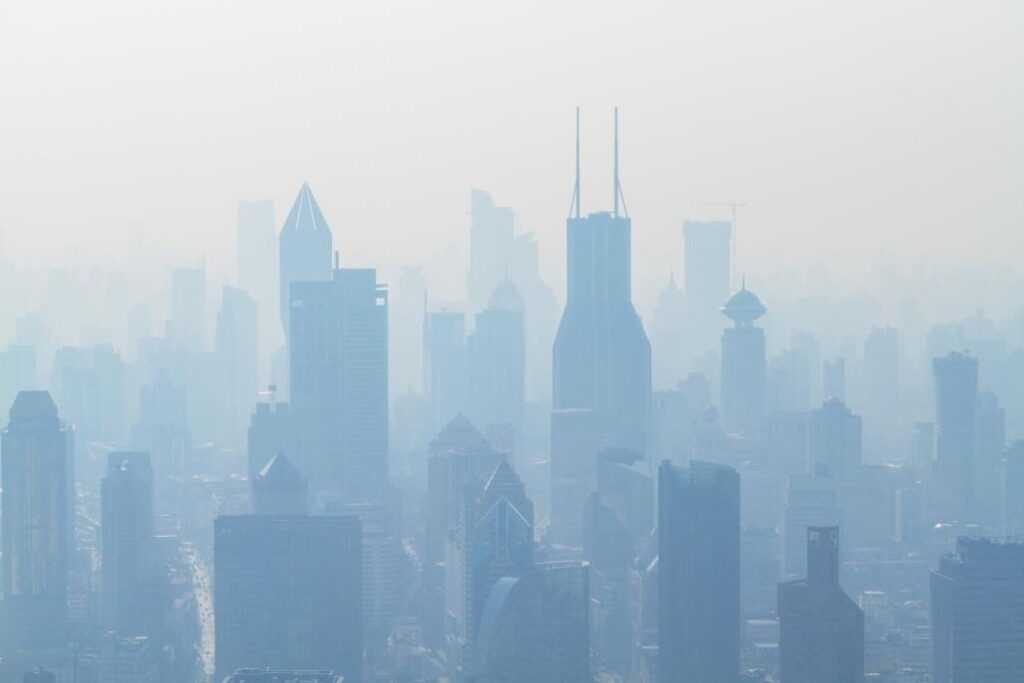Spring into Action: Washington’s Department of Ecology Promotes Air Quality Awareness
As the vibrant season of spring unfolds in Washington state, the Department of Ecology is calling on residents to reflect on an essential yet frequently neglected aspect of our lives: air quality. This week marks Air Quality Awareness Week, a statewide campaign aimed at enlightening citizens about the importance of clean air and encouraging proactive measures to protect it. With growing concerns regarding pollution and its effects on health and ecosystems, this observance serves as a crucial reminder of our shared duty to enhance and preserve air quality. Throughout this week, the Department will provide valuable resources, practical tips, and insights for everyone—from families to businesses—on how they can contribute to a cleaner atmosphere. Let’s explore why air quality matters and discover ways we can engage in this vital dialogue.
The Essence of Air Quality Awareness
The quality of the air we breathe significantly influences our overall well-being; it impacts not only respiratory health but also cardiovascular function, cognitive abilities, and emotional stability. By raising awareness about air quality issues, individuals are empowered to take meaningful actions that benefit both their communities and themselves. Recognizing common sources of pollution—such as vehicular emissions, industrial activities, and natural events like wildfires—is crucial for minimizing exposure during poor air quality days.
Public education initiatives regarding air quality can manifest in various forms including community workshops, online platforms offering information resources, or educational programs within schools. These efforts typically focus on several key areas:
- The importance of real-time monitoring systems for tracking air pollution levels.
- The health risks associated with specific pollutants such as particulate matter (PM) and ozone (O3).
- Actionable steps individuals can adopt like reducing car usage or utilizing indoor air purifiers.
- The impact local regulations have on emission control efforts.
Local governments play a pivotal role in these educational endeavors by partnering with schools, non-profit organizations, and community groups. By cultivating an environment centered around awareness initiatives we can collectively strive towards bettering our air quality—and consequently enhancing public health.
Pollutants: Their Health Risks & Environmental Impact
Air pollution poses significant threats not only to human health but also to environmental integrity; certain pollutants are particularly detrimental. Among these are particulate matter (PM), nitrogen dioxide (NO2), and ozone (O3). Particulate matter is often associated with vehicle exhausts or industrial emissions; it has been linked with serious respiratory illnesses as well as cardiovascular complications due to its ability to infiltrate deep into lung tissues. Nitrogen dioxide primarily arises from vehicles or power generation facilities—it contributes significantly toward ground-level ozone formation while aggravating asthma conditions among vulnerable populations. Ground-level ozone itself is notorious for being a major component in smog formation which leads not only to diminished lung capacity but also increased hospital admissions during warmer months.
The environmental ramifications stemming from these pollutants are equally concerning; nitrogen oxides contribute substantially towards acid rain development which adversely affects aquatic habitats while damaging forests—ultimately threatening agricultural yields too! Furthermore ozone contamination hampers plant growth leading farmers into economic distress while disrupting food supply chains across regions worldwide. Efforts aimed at curbing these emissions serve dual purposes—they enhance atmospheric conditions while safeguarding biodiversity ensuring healthier ecosystems for generations ahead! Raising public consciousness surrounding these critical pollutants remains essential when advocating for cleaner atmospheric policies.
Community Action: Enhancing Local Air Quality
A collaborative approach involving residents alongside local businesses plus governmental bodies is necessary if we wish improve community-wide ambient conditions effectively! Begin by focusing on reducing vehicle-related emissions through promoting public transport usage carpooling options biking alternatives instead! Encourage nearby enterprises adopt sustainable practices that limit their ecological footprints too! Consider joining forces forming groups dedicated solely towards improving regional atmospheres lobbying policymakers support renewable energy projects green space developments here’s some immediate actions you could undertake:
- Avoid unnecessary idling: Switch off your engine whenever parked waiting around!
- Create green spaces: strong > Engage actively tree-planting campaigns help absorb carbon dioxide! li >
< li >< strong > Opt eco-friendly products:< / strong > Select non-toxic cleaning agents paints reduce indoor contaminants! li >
ul >
Additionally educating fellow members within your locality about significance surrounding clean breathable environments could spark transformative changes throughout society itself Schools businesses civic organizations alike may host informative sessions workshops disseminating knowledge pertaining sources harmful effects related directly back onto human beings consider collaborating local authorities implement comprehensive monitoring programs track fluctuations observed over time partnerships established below facilitate improved management strategies : p >
Partnership th >
Objective th >
tr >
< tr >
< td >Local Schools< /td >
< td >Educate students regarding airborne contaminants.< /td >
< /tr >
< tr >
< td >Environmental NGOs< /td >
< td >Facilitate awareness campaigns via community gatherings.< /td >
< /tr >
Civic Authorities Pursue advocacy efforts promoting sustainable transportation policies. tbody>
tbody>
tbody>
tbody>
tbody>
tbody>
tbody>
tbody>
tbody>
In Summary/Conclusion/h1 As Air Quality Awareness Week comes full circle it stands testament ongoing dedication preserving both ecological balance protecting citizen welfare across Washington State The initiatives spearheaded by Department Ecology underscore significance maintaining pristine atmospheres whilst equipping populace necessary tools knowledge enact positive change Reflecting upon discussions activities held throughout past few days emphasizes need prioritize clean breathable environments beyond mere observance period Engaging actively supporting local endeavors advocating sustainable practices remaining informed collectively fosters healthier more resilient future all inhabitants For further details concerning airborne safety measures contributions visit official website stay updated upcoming events year-round
